第6章
To explain briefly: owing to the fact that the workmen in all of our trades have been taught the details of their work by observation of those immediately around them, there are many different ways in common use for doing the same thing, perhaps forty, fifty, or a hundred ways of doing each act in each trade, and for the same reason there is a great variety in the implements used for each class of work.Now, among the various methods and implements used in each element of each trade there is always one method and one implement which is quicker and better than any of the rest.And this one best method and best implement can only be discovered or developed through a scientific study and analysis of all of the methods and implements in use, together with accurate, minute, motion and time study.This involves the gradual substitution of science for rule of thumb throughout the mechanic arts.
This paper will show that the underlying philosophy of all of the old systems of management in common use makes it imperative that each workman shall be left with the final responsibility for doing his job practically as he thinks best, with comparatively little help and advice from the management.And it will also show that because of this isolation of workmen, it is in most cases impossible for the men working under these systems to do their work in accordance with the rules and laws of a science or art, even where one exists.
The writer asserts as a general principle (and he proposes to give illustrations tending to prove the fact later in this paper) that in almost all of the mechanic arts the science which underlies each act of each workman is so great and amounts to so much that the workman who is best suited to actually doing the work is incapable of fully understanding this science, without the guidance and help of those who are working with him or over him, either through lack of education or through insufficient mental capacity.In order that the work may be done in accordance with scientific laws, it is necessary that there shall be a far more equal division of the responsibility between the management and the workmen than exists under any of the ordinary types of management.Those in the management whose duty it is to develop this science should also guide and help the workman in working under it, and should assume a much larger share of the responsibility for results than under usual conditions is assumed by the management.
The body of this paper will make it clear that, to work according to scientific laws, the management must take over and perform much of the work which is now left to the men; almost every act of the workman should be preceded by one or more preparatory acts of the management which enable him to do his work better and quicker than he otherwise could.And each man should daily be taught by and receive the most friendly help from those who are over him, instead of being, at the one extreme, driven or coerced by his bosses, and at the other left to his own unaided devices.
This close, intimate, personal cooperation between the management and the men is of the essence of modern scientific or task management.